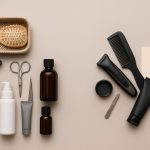Medical work experience—why it can be hard to get, what you can do, and how to turn any situation into a win for your journey, even if things don’t go as planned
Why is Medical Work Experience So Hard to Get?
Shadowing or working in healthcare is golden. Medicine work experience gives you a taste of real medicine and shows schools you’re committed. But it’s not always easy!
- Rules & Red Tape—Hospitals have strict policies about patient privacy, insurance, and safety—especially post-pandemic.
- High Demand—Lots of students want placements, so spots fill up fast.
- Contacts Matter—Sometimes, it’s about who you know (family in healthcare, school partnerships).
- Geography—Rural or under-resourced areas may have fewer opportunities.
- Life Stuff—Sometimes, life throws curveballs—family situations, health, finances—that make it hard to commit time or travel for placements.
If you’re struggling to get experience, it’s not a reflection on your dedication or potential. It’s just the system—and you’re not alone!
What If You Can’t Get That Experience Right Away?
First, don’t panic—there are plenty of ways to show you’ve got the right stuff for medicine, even if you don’t have the classic placement under your belt.
Not everyone gets this chance. When folks talk about a “classic placement,” they usually mean a traditional hands-on experience in a clinical setting—think shadowing a doctor or nurse in a hospital or GP surgery, observing patient care, maybe even interacting with patients under supervision. It’s the “gold standard” because it puts you right in the thick of real-world medicine.
It’s not automatically granted for good grades or past achievements. Sometimes it’s about timing, connections, sheer luck, or living in the right place. If you don’t have it, it doesn’t mean you’re behind—it just means your path is different, and you can still shine!
1. Broaden the Definition of “Relevant Experience”
Care homes, pharmacies, hospices, or even volunteering with charities (think: mental health, disability support, first aid with St John, Red Cross, etc.)—all count! Even a part-time job in customer service, retail, or tutoring can teach communication, teamwork, and responsibility.
Paid work vs. volunteering—does one matter more? Both count! You can get paid for some roles (like being a healthcare assistant, support worker, or even a receptionist in a clinic). Other roles are volunteer-based (helping at care homes, charities, or community groups).
Which is better? Paid work shows you can handle responsibility, commitment, and maybe some tough shifts. On the other hand, volunteering shows your willingness to give back and learn for the sake of learning.
Neither is “more pure” than the other. Mercy doesn’t mean poverty! It’s the skills and insight you gain that matter. If you need to earn money, that’s perfectly valid and also demonstrates real-world resilience. If you volunteer, that’s great, too! Both can lead to strong reflections and stories for your applications.
2. Virtual Experiences
Since the pandemic, lots of hospitals and organizations offer online shadowing, webinars, and case studies. Not quite the same, but still valuable (and interviewers know this!).
3. Reflection is Key
Medical schools care more about what you learned than where you learned it. If you can talk about what surprised you, what challenged you, and how it changed your understanding of healthcare, you’re golden!
4. Ask, Ask, Ask
Email local GP surgeries, care homes, or clinics. Sometimes a polite, well-worded letter gets you in the door when others haven’t tried. Ask teachers, friends, or family—sometimes someone knows someone. So, if you can’t find the pulse, sometimes you’re just looking in the wrong place.
5. Be Honest in Applications
If they ask why you don’t have hospital experience, just explain the barriers and what you did instead. Resilience and adaptability are huge qualities in medicine! You can turn a potential personal tragedy into a victory.
The best doctors (and students!) are always curious, always looking for new angles, never pretending to know it all. Medicine changes every day—being humble and hungry for new info is a real asset.
What to do if things go south? If you get turned down, plans get cancelled, or you hit a dead end. Never give up. Maybe you haven’t found the exit, but for now!
- Don’t Give Up—Try a different angle—maybe a phone interview with a healthcare worker, an online course, or a project about healthcare in your community.
- Reflect on the Journey—What did you learn about yourself? About perseverance? About improvising? That’s all great material for interviews and personal statements.
It’s not about ticking boxes. It’s about showing you’re committed, adaptable, and ready to learn—no matter what comes your way.
How to Write a Letter that Opens Doors—Polite and Memorable
Never write from a place of desperation or lack. Instead, approach it as someone eager to learn, ready to contribute, and grateful for the chance.
Here’s a simple but effective structure:
1. Polite Greeting:
Dear [Name/Title],
The opening sets the tone. Too stiff feels cold, too breezy feels unprofessional. Here are a few options that strike the balance:
- Classic, but warm:
- Dear Dr. Ahmed,
- Hello Dr. Patel,
- Good morning, Ms. Roberts,
- OR,
- A touch of personality:
- I hope this note finds you well.
- I’m reaching out with genuine curiosity and a keen interest in your work.
4. Brief Introduction:
My name is [Your Name], and I’m a [year group/aspiring medical student] with a keen interest in learning more about healthcare.
If you want to avoid the “My name is…” opener, just jump into your purpose. For example:
I’m a curious student eager to learn more about real-world healthcare, and your team’s work caught my attention…
Starting with the name is not such a brilliant idea, to be honest—because it’s not about you, it’s about why you’re reaching out. Try something like:
“As an aspiring medic who’s passionate about patient care, I’ve been searching for a chance to observe the realities of the profession beyond the textbooks.”
Your name will be in the signature. The “curious student” angle is great, just keep it genuine and clear.
3. Why You’re Writing:
I’m writing to ask if you might consider allowing me to observe or assist in your [practice/hospital/clinic] to gain insight into the realities of patient care and the medical profession.
This is your moment to ignite curiosity! Instead of “I want work experience,” try:
“I’m fascinated by the art of medicine—the blend of science, teamwork, and empathy. I’m hoping to see how these come to life in your setting, and to learn from those who do it best.”
Or even:
“I’d love the chance to witness the real challenges and joys of the job, and to better understand what makes a great clinician, beyond what I’ve read in books.”
4. Why Them:
I admire the work your team does, particularly [something specific about their practice or patient group, if possible]. I believe spending time in your setting would be invaluable to my understanding of compassionate and effective healthcare.
This is where it pays to be specific but brief. Avoid generic flattery like “the best.” Try:
“Your clinic’s reputation for compassionate care stands out.
I’ve been inspired by your team’s work in [community/field].
I’m especially interested in [one thing unique to them—could be their style, patient group, or a project].”
5. What You Offer:
I am responsible, eager to learn, and happy to help with any tasks needed. I understand the importance of confidentiality and professionalism, and I am committed to respecting all guidelines.
“Ready for any task” is gold, but let’s show it with style. For example:
“I know valuable lessons often start with the less glamorous jobs, and I’m ready to help wherever I’m needed—even if that means starting with the basics. I’m motivated, observant, and eager to support your team in any way that makes a difference.”
Or:
“Whether it’s helping with paperwork, making tea, or just listening and learning, I’m here to contribute and soak up as much as possible.”
6. Flexibility:
I am very flexible regarding dates and times and would be grateful for any opportunity, even if just for a short period or shadowing a single day.
7. Gratitude & Sign-Off:
Thank you so much for considering my request. I look forward to hearing from you.
Kind regards,
[Your Name]
[Contact Info]
This is where your warmth comes through. Instead of a generic “thank you,” try the other way:
“Thank you for considering my request—it would mean a lot to learn from your team.
I appreciate your time and any advice you can offer, even if an opportunity isn’t available right now.”
Pro-tips:
- Keep it concise: busy professionals appreciate brevity!
- Personalize each letter (no copy-paste spamming!)
- Proofread—shows attention to detail.
When you approach someone, do it from a place of curiosity and respect (“I’d value your insight and am keen to contribute/learn”), not from a place of “I desperately need this or I’ll fail!”
People respond best to genuine interest and a positive attitude, not guilt or pressure.
It’s like medicine itself—you don’t just treat the symptoms (lack), you focus on building health (strength, potential, growth).
Putting It All Together—A Sample Flow
Subject: Work Experience Enquiry
Dear Dr. Smith,
I hope this note finds you well.
As a curious student passionate about patient care, I’m searching for ways to learn beyond textbooks. I’m fascinated by how science and empathy meet in medicine, and I’d love to observe how your team brings this to life.
Your practice’s dedication to [something specific—e.g., community outreach, patient-centered care] caught my attention, and I’m eager to learn from your approach.
I understand that valuable lessons often start with the basics, so I’m ready to help however I can—whether that’s assisting with tasks, shadowing, or simply listening and learning. I’m motivated, reliable, and keen to contribute wherever possible.
Thank you for considering my request. Even advice or a short conversation would be greatly appreciated.
Kind regards,
[Your Name]
[Contact Information]
Let your curiosity and gratitude lead. If you’re genuine, it shines through—people feel it, even through a screen. And if you get a “no,” remember: every connection and every letter is a step forward.
Daily Commandments for a Future Doctor
- An open mind for whatever the day throws at me.
- A notebook for jotting down new impressions (from patients, colleagues, or students).
- A reminder that sometimes, the best medicine is curiosity and kindness.
Keep asking, keep learning! The world needs more bright minds with big hearts, and you’re already making a difference just by trying.
Lynn Martelli is an editor at Readability. She received her MFA in Creative Writing from Antioch University and has worked as an editor for over 10 years. Lynn has edited a wide variety of books, including fiction, non-fiction, memoirs, and more. In her free time, Lynn enjoys reading, writing, and spending time with her family and friends.















